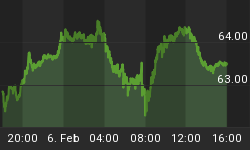As real estate prices spiraled upwards over the last ten years, artificially low interest rates and lax lending standards were not the only factors helping to maintain housing affordability. Just as important were the expectations of future price appreciation and the suppression of the rental market. With these two factors largely reversed, the housing market is much more vulnerable than most people understand.
Given that many people expected to extract money from future appreciation, which could help pay mortgages, taxes, maintenance, and insurance, houses actually seemed cheaper to buy, despite soaring sticker prices. On the other side of the coin, without offering the bounty of free cash, the rental market suffered a multi-year torpor. Flat rents anchored a rock-bottom core CPI, which allowed the Fed to keep rates low and the cheap mortgages flowing.
Now that house price appreciation is slowing, or in some cases reversing, buying houses is paradoxically becoming much more expensive. An example is in order:
Assume a home buyer purchased a condo for $500,000 using a zero-down, no-doc, interest-only ARM. Let's assume that his interest rate was 4%, with taxes, insurance and maintenance adding another 1% per year. The annual cash cost would be $25,000, or just over $2,000 per month. However, if the buyer assumed an annual appreciation rate of 10%, creating the potential of $4,000 per month in equity extraction, the expected monthly cost becomes negative $2,000. (In a survey last year the typical Los Angeles homebuyer expected an annual appreciation rate of 20%) In other words, our condo buyer actually expects to be paid $2,000 per month as a result of his purchase. So even if he had monthly income of only $3,000, he would have no qualms about assuming a mortgage equal to almost 70% of his actual pretax income and lying about his income to qualify for the loan.
Now assume the interest rate on a zero down $500,000 interest-only mortgage rises to 7%. Assuming taxes, insurance and maintenance still add 1%, the annual cost is now $40,000, or $3,300 per month. However this 65% increase is actually just the tip of the iceberg. If the borrower, now more modest about his expectations, assumes an annual appreciation rate of only 5%, his expected annual cost is now only reduced by $25,000, resulting in an expected annual net cost of $15,000. From the buyers perspective a house which once paid its owner $2,000 per month to live in it now costs $1,250 per month to own. Therefore the true increase in cost is not just 65% but 3,250%! Of course, if housing prices remain stable or fall, the real cost is far higher. Since the $1,250 per month represents over 40% of the buyer's pre-tax income, these higher mortgage payments will now be a difficult burden to bear, even with the diminished equity extractions. Without the cash outs, affordability would be impossible.
As the slowing housing market increases the perceived cost of buying, renting becomes a far more compelling option. However, due to all the recent condo-conversions, the supply of rental housing is somewhat constrained. As higher interest rates increase the debt service expenses of landlords, many of whom financed with ARMs themselves, they not only have a strong motivation to raise rents, but the means to get away with it.
Rents and the CPI
Rents make up 40% of the core CPI, and are by far the index' largest component. For the reasons outlined above, a softening housing market eliminates the financial advantages of buying and increases demand for rental properties. Recent data shows that national rents are increasing at a rate not seen in more than five years. This has begun to show up in the core CPI, which will continue to grow with the surging rental market. Just as rising home prices paradoxically suppressed the core CPI, falling real estate prices will now do the reverse. A more rapidly rising core CPI will force the Fed to continue raising rates, putting even more pressure on home prices, and initiating a particularly nasty spiral.
The Fed of course now has a real conundrum on its hands. It either plays down the significance of the core, possibly excluding rents entirely as they now do food and energy, or continue to raise rates even as housing prices collapse. The former, which amounts to a version of "heads I win, tails you loose", risks exposing the Fed as hypocrites. The loss of any remaining faith in the Fed will cause a run on the dollar and even more inflation. On the other hand, to continue raising rates will surely tip the economy into a recession.
My guess is that the Fed is already preparing the markets for a pause even as core consumer prices continue to rise. The spin will be that peaks in core consumer prices historically occur with a lag relative to the end of a tightening cycle. This will likely buy the Fed a little extra time until the markets finally notice that rather than peaking, core prices just keep on rising. Therefore, the greatly anticipated, highly illusive pause will not be the least bit refreshing.
Don't wait for reality to set it. Protect your wealth and preserve you purchasing power before it's too late. Discover the best way to buy gold at www.goldyoucanfold.com, download my free research report on the powerful case for investing in foreign equities available at www.researchreportone.com, and subscribe to my free, on-line investment newsletter at http://www.europac.net/newsletter/newsletter.asp.















